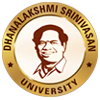Admission Enquiry Form
for UG/PG : admissions@dsuniversity.ac.in , for Ph.D : admissions.research@dsuniversity.ac.in
Helpline : +91 63841 76766 | 63841 76769
Learn to create

Admission Enquiry Form
for UG/PG : admissions@dsuniversity.ac.in , for Ph.D : admissions.research@dsuniversity.ac.in
Helpline : +91 63841 76766 | 63841 76769Monthly Research Lecture Seriess
nbsp
As a part of monthly research lecture series DSU-Centre for Research organized two invited lectures on 29-Oct-2022. nbspDr. Sanhita Sinharay from Indian Institute of Science Bangalore delivered a wonderful talk on ldquoSailing through a Ph.D.rdquo She emphasized on the importance of reading at least 100 research articles in the first year of a Ph.D. by research scholars. nbspShe emphasized that Ph.D. a joint venture and although the talk was from a scholar39s perspective there were so many messages that a mentor could pick up throughout your talk. She touched upon every stagephase of a Ph.D. journey and these have been brought out beautifully all along the way. The second talk was delivered by Dr. Chandan Maity from Vellore Institute of Technology Vellore on the topic ldquoControl over Self-assembly towards Smart Material Formationrdquo.nbsp In Nature control over the formation of molecules and molecular architectures with specific precision are well known directing vital process such as cell motility intercellular transport etc. Besides as a class of fascinating molecules enzymes act as biological catalyst accelerating specific reactions in aqueous environment. Enzymes can modulate their catalytic activity in presence of physicochemical stimuli. Enzyme catalysis and related mechanism are the important source of inspiration for developing artificial biomimetic systems. In comparison the examples of controlled formation of molecules and supramolecular materials for artificial systems are rare. Generally in the artificial systems catalyticreactions take place with initially chosen reaction conditions. Hence the control over the chemical process is difficult which would be required for smart applications. On the other hand most of the artificial chemical reactions takes place in organic solvents which have toxicity issues and other risk factors such as flammability explosivity. With that respect water is a safe reaction medium which is abundant cheap and environmentally friendly. Dr. Chandan showed how catalytic activity of an artificial system can be controlled in an aqueous atmosphere by the application of stimuli. Besides control over in-situ formation of molecular building block which could result in the formation of smart material was also discussed.